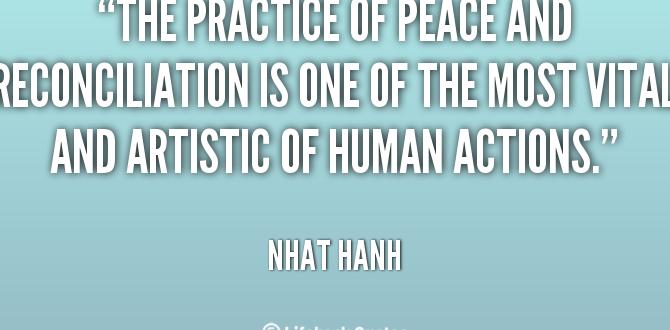Here’s the best relationship advice for women: Focus on clear communication, mutual respect, and shared growth. Nurture your individual well-being while building a strong partnership. Prioritize emotional honesty and understanding to create lasting connections.
Navigating the world of relationships can sometimes feel like trying to find your way through a maze. You might wonder if you’re doing things right, or if there are hidden keys to unlocking deeper connection and happiness. Many women find themselves seeking guidance, especially when relationships feel a bit off or when they’re looking to make a good thing even better. It’s completely natural to want to understand how to build and maintain fulfilling connections. The good news is, you don’t need complicated theories. What you need are straightforward, actionable tips that help you feel more confident and capable in your relationships. Let’s explore some essential secrets that can transform your experience, step by step.
The Foundation of Great Relationships for Women
At the heart of any thriving relationship – whether it’s romantic, a deep friendship, or even a family bond – lies a set of core principles. For women, understanding and implementing these can be incredibly empowering. It’s not about changing who you are, but about enhancing how you connect and express your needs and desires in a way that fosters mutual understanding and growth. These aren’t magic spells, but rather practical tools you can start using today.
1. Prioritize Your Own Well-being (Self-Love as a Relationship Superpower)
This might sound counterintuitive, but the most impactful relationship advice for women often starts with looking inward. When you’re happy, healthy, and confident in yourself, you bring so much more positive energy to your connections. It’s not selfish; it’s essential. Think of it as filling your own cup so you have plenty to share.
- Know Your Worth: Understand that you deserve kindness, respect, and love. Your value doesn’t depend on anyone else’s approval.
- Pursue Your Passions: Continue to engage in hobbies, career goals, and activities that bring you joy and a sense of accomplishment. This keeps you vibrant and interesting.
- Set Healthy Boundaries: Learn to say “no” when you need to. Protecting your time and energy is crucial for preventing burnout and resentment.
- Practice Self-Care: This means whatever nourishes you – whether it’s quiet time, exercise, creative expression, or spending time with supportive friends.
2. Master the Art of Communication: Speaking Your Truth
Communication is the lifeblood of any relationship. For women, learning to articulate their thoughts, feelings, and needs clearly and calmly can make a world of difference. It’s about being heard and understood, not about winning an argument.
Why Clear Communication Matters
Misunderstandings often stem from assumptions or a fear of speaking up. When you communicate effectively:
- You prevent small issues from becoming big problems.
- You build trust and intimacy.
- You ensure your needs are understood and hopefully met.
- You create a space for your partner to express themselves authentically.
Tips for Effective Communication
- Use “I” Statements: Instead of “You always do X,” try “I feel Y when X happens.” This focuses on your experience without placing blame.
- Be Specific: Vague complaints are hard to address. Clearly state what the issue is and what you’d prefer.
- Listen Actively: Pay attention to what your partner is saying, both verbally and non-verbally. Ask clarifying questions and restate what you’ve heard to ensure understanding. Learning active listening can significantly improve your interactions. Resources like the National Communication Association offer valuable insights into communication principles.
- Choose the Right Time and Place: Avoid bringing up serious topics when either of you is tired, stressed, or distracted.
- Be Open to Feedback: Communication is a two-way street. Be willing to hear your partner’s perspective and needs.
3. Cultivate Mutual Respect and Appreciation
Respect is non-negotiable. It means valuing your partner for who they are, acknowledging their individuality, and treating them with dignity. Appreciation, on the other hand, is about actively recognizing and valuing the positive things about your partner and your relationship.
What Mutual Respect Looks Like:
- Valuing each other’s opinions, even when they differ.
- Honoring each other’s boundaries and personal space.
- Supporting each other’s goals and dreams.
- Trusting each other’s intentions and actions.
- Treating each other with kindness, even during disagreements.
Showing Appreciation:
Don’t let the good things go unnoticed. Regularly express gratitude. This can be through:
- Verbal Affirmations: “Thank you for doing X,” “I really appreciate you,” “You’re so good at Y.”
- Acts of Service: Doing something thoughtful for them without being asked.
- Thoughtful Gestures: A small gift, a love note, or planning a date.
- Quality Time: Giving them your undivided attention.
A study from the Gottman Institute highlights that couples who frequently express appreciation have significantly higher relationship satisfaction. Make it a daily practice!
Building Deeper Connections: Essential Secrets Unveiled
Beyond the foundational elements, there are specific strategies women can employ to deepen their connections and foster a more resilient and joyful relationship. These involve proactive effort and a willingness to evolve together.
4. Embrace Vulnerability: The Key to True Intimacy
Vulnerability isn’t weakness; it’s courage. It’s the willingness to show your true self, flaws and all, and to allow your partner to see your inner world. This is how genuine intimacy is built.
- Share Your Feelings: Don’t bottle up emotions. Share your joys, fears, hopes, and insecurities.
- Admit When You’re Wrong: Taking responsibility for mistakes builds trust.
- Ask for Help: It shows you trust your partner and value their support.
- Be Open About Your Past: Share relevant experiences that have shaped you.
When you allow yourself to be vulnerable, you give your partner permission to do the same, creating a safe space for honest connection.
5. Foster Shared Growth and Individual Pursuits
The best relationships involve partners who encourage each other to grow, both as individuals and as a couple. It’s a delicate balance: celebrating individual achievements while building a shared future.
Growing Together:
- Set Joint Goals: Work towards common aspirations, whether it’s saving for a house, planning a trip, or learning a new skill together.
- Support Each Other’s Development: Encourage personal interests, career advancement, and learning.
- Navigate Challenges as a Team: Face difficulties side-by-side, using them as opportunities to strengthen your bond.
- Experience New Things: Trying new activities or visiting new places together creates shared memories and strengthens your connection.
Maintaining Individuality:
It’s vital to remember that you are two distinct individuals within the relationship. Maintaining your sense of self is crucial for long-term happiness and a healthy dynamic.
- Dedicate time to your personal friendships and separate interests.
- Respect each other’s need for alone time.
- Support individual growth paths, even if they diverge slightly.
6. Understand and Navigate Conflict Constructively
Conflict is inevitable in any relationship. The key isn’t to avoid it, but to learn how to handle disagreements in a way that strengthens, rather than damages, your bond. This is a crucial part of the best-received relationship advice for women.
| Common Conflict Triggers | Constructive Approaches | Destructive Approaches to Avoid |
|---|---|---|
| Differing opinions or needs | Active listening, seeking understanding, finding compromise | Yelling, blaming, shutting down, personal attacks |
| Misunderstandings | Asking clarifying questions, expressing feelings calmly | Making assumptions, interrupting, dismissing feelings |
| Stress or external pressures | Taking a break if needed, acknowledging the stress, offering support | Taking out frustration on the partner, silent treatment |
| Unequal contribution (chores, planning) | Open discussion about expectations and division of labor | Resentment, passive aggression, keeping score |
Remember, the goal isn’t to “win” the argument, but to reach a resolution that respects both partners’ feelings and needs. For deeper insights into conflict resolution, exploring resources on positive psychology and relationship dynamics can be very beneficial. For instance, research from Psychology Today often provides evidence-based strategies for navigating difficult conversations.
7. Nurture Trust Through Consistency and Reliability
Trust is the bedrock of any secure relationship. As a woman, building and maintaining trust involves showing up consistently, being reliable, and demonstrating integrity in your words and actions.
- Be Honest: Even about small things. Little white lies erode trust over time.
- Keep Your Promises: If you say you’ll do something, do it. If you can’t, communicate why as soon as possible.
- Be Dependable: Your partner should feel they can count on you, especially during tough times.
- Respect Confidentiality: Don’t share private information about your partner or relationship with others without their permission.
Trust is built brick by brick over time. Every consistent, positive interaction adds to that foundation.
8. Practice Empathy: Stepping into Their Shoes
Empathy is the ability to understand and share the feelings of another. It’s a powerful tool for connection and is often highlighted in the best relationship advice for women, as it helps bridge understanding between partners.
- Try to See Their Perspective: Even if you don’t agree, try to understand why they feel or think a certain way.
- Validate Their Feelings: Let them know it’s okay to feel what they’re feeling. Phrases like “I can see why you’d be upset” or “That sounds really frustrating” can be very validating.
- Be Present: When your partner is sharing, give them your full attention.
Empathy doesn’t mean you have to agree with their actions or feelings, but it does mean acknowledging their reality. This fosters a sense of being truly seen and understood.
Strengthening Your Relationship: Actionable Steps for Women
Now that we’ve covered the core principles and secrets, let’s break down how you can actively implement this advice into your daily life and relationships.
9. The Power of Small Gestures
Grand romantic gestures are lovely, but it’s often the consistent, small acts of kindness and thoughtfulness that make a relationship truly flourish. These are the everyday expressions of love and care that keep the connection strong.
- Leave a sweet note for your partner.
- Send a text just to say “I love you” or “Thinking of you.”
- Make their favorite meal or coffee.
- Offer a genuine compliment.
- Listen attentively when they talk about their day.
- Help with a chore they dislike.
These little things, done consistently, communicate that you care and are invested in your partner’s happiness and the health of your relationship.
10. Prioritize Quality Time
In our busy lives, dedicated quality time can feel like a luxury, but it’s a necessity for a thriving relationship. This isn’t just about being in the same room; it’s about being truly present with each other.
- Schedule Date Nights: Whether it’s a night out or a cozy night in, make it a consistent event.
- Put Away Distractions: During your designated time, turn off phones and laptops.
- Engage in Shared Activities: Cook together, go for a walk, play a game, or watch a movie and then discuss it.
- Have Meaningful Conversations: Ask open-ended questions and truly listen to the answers.
Quality time reinforces your bond, creates shared experiences, and ensures you continue to connect on a deeper level.
11. Embrace Forgiveness
No one is perfect, and in any relationship, there will be times when mistakes are made, and hurt occurs. Learning to forgive, both yourself and your partner, is essential for moving forward and maintaining a healthy connection.
- Acknowledge the Hurt: It’s okay to feel hurt, but then work towards letting go of the resentment.
- Communicate Your Feelings: Discuss the incident calmly, focusing on the impact it had.
- Accept the Apology (if sincere): When your partner apologizes, accept it and work towards moving past the issue.
- Let Go of the Past: Holding onto grudges can poison a relationship. Focus on the present and future.
Forgiveness doesn’t mean condoning bad behavior, but it does mean choosing peace and emotional freedom over a lingering sense of grievance.
12. Continuously Learn and Adapt
Relationships are dynamic. People change, circumstances change, and your relationship will need to adapt. Remaining open to learning about yourself, your partner, and the evolving nature of your connection is key.
- Read Books or Articles: Explore resources on relationships, communication, and personal growth.
- Attend Workshops or Seminars: Consider couples counseling or workshops focused on relationship skills.
- Have Regular Check-ins: Talk openly about how the relationship is going and what could be improved.
- Be Flexible: Life throws curveballs. Being adaptable and willing to adjust plans or expectations is crucial.
A commitment to continuous learning ensures your relationship remains vibrant and resilient.
Frequently Asked Questions About Relationship Advice for Women
Here are some common questions women have about relationships, with straightforward answers.
What’s the most important thing in a relationship for women?
While many factors contribute, most women find that Feeling Understood, Respected, and Valued is paramount. This encompasses clear communication, emotional support, and genuine appreciation for who they are.
How can I improve communication with my partner?
Focus on active listening: pay attention, ask clarifying questions, and summarize what you’ve heard. Use “I” statements to express your feelings without blame, and choose calm moments for important discussions.
Is it okay to have different interests than my partner?
Absolutely! It’s healthy and even beneficial. Having individual interests keeps you both vibrant and provides different perspectives. The key is to support each other’s passions and still make time for shared activities.
What does it mean to be vulnerable in a relationship?
Vulnerability means being willing to share your true self, including your fears, insecurities, and deepest emotions. It’s about letting your guard down and allowing your partner to see the real you, which builds deeper intimacy.
How do I set boundaries in a relationship?
Identify your limits – what you are and aren’t comfortable with. Communicate these boundaries clearly and kindly to your partner (e.g., “I need some alone time after work”). Be consistent in upholding them and be prepared to reiterate them if necessary.
What if my partner doesn’t communicate well?
Start by modeling good communication yourself. Use “I” statements and practice active listening. Gently encourage them to share their feelings. If persistent issues remain, consider suggesting couples counseling as a neutral space to learn better communication skills.
How can I build more trust with my partner?
Trust is built through consistent honesty, reliability, and keeping your word. Be transparent, follow through on your commitments, and be dependable, especially during challenging times. Openly discuss any trust concerns you might have.
Conclusion: Your Blueprint for Stronger, Happier Relationships
Embarking on the journey of building and nurturing fulfilling relationships is a continuous and rewarding process. By focusing on self-awareness, clear and open communication, mutual respect, and a commitment to both individual and shared growth, you are well on your way to creating the deep, lasting connections you deserve. Remember, the “best” relationship advice for women isn’t about fitting a mold, but about empowering yourself with the tools to express your needs, understand your partner, and navigate life’s ups and downs together with grace and strength. Implement these strategies, be patient with yourself and your partner, and celebrate the evolving beauty of your unique bond.





